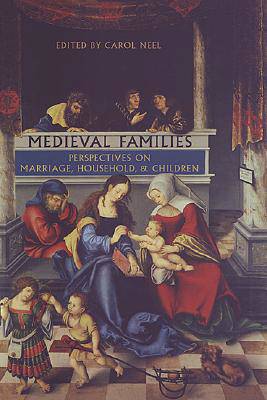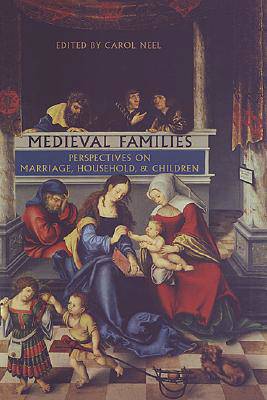
- Retrait gratuit dans votre magasin Club
- 7.000.000 titres dans notre catalogue
- Payer en toute sécurité
- Toujours un magasin près de chez vous
- Retrait gratuit dans votre magasin Club
- 7.000.000 titres dans notre catalogue
- Payer en toute sécurité
- Toujours un magasin près de chez vous
Medieval Families
Perspectives on Marriage, Household, and Children
Description
During the past thirty years, the study of medieval families has emerged as a focus of discussion in European history. Largely unexplored in professional publications and teaching curricula until the 1970s, family history is now accepted as an aspect of medieval history essential to the development of the period's institutions and culture, and a field useful to comparative family studies.
The present volume brings together essays by historians, art historians, and literary scholars about the structures, social functions, and emotional characteristics of families in the middle ages, from demographic, legal, theological, art historical, and literary sources according to a broad array of theoretical approaches. Presenting these materials in the chronological order of its constituent articles' publication, the collection reveals how scholars of the 1970s through the 1990s argued the importance of previously unconsidered questions about the shape of medieval familial experience, and how their mutual information and criticism has refined and added to this investigation in the intervening period. The introduction and bibliography enable both beginning students and medievalists newly interested in family studies to set the articles gathered here in the context of the later twentieth-century transformation of medieval studies and, more broadly, historical scholarship. These supporting materials, like the eleven articles, affirm the profoundly interdisciplinary character of contemporary medieval studies.
Spécifications
Parties prenantes
- Editeur:
Contenu
- Nombre de pages :
- 430
- Langue:
- Anglais
- Collection :
Caractéristiques
- EAN:
- 9780802084583
- Date de parution :
- 01-04-04
- Format:
- Livre broché
- Format numérique:
- Trade paperback (VS)
- Dimensions :
- 153 mm x 228 mm
- Poids :
- 666 g






